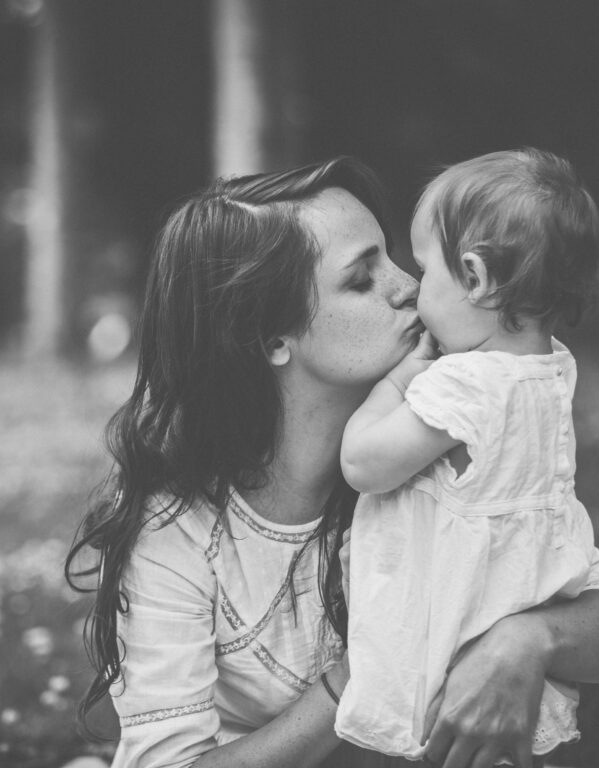
I’m sat, typing away, when the cafe door bangs open and a stocky man with a booming voice strides in. He’s shouting at me. ‘Who are you in my cafe?’ He has wide set eyes and his hands are balled into fists. He must be over 6 foot tall.
I think about how scary this would be for somebody else. Glancing up, & I smile and say, ‘hi, I’m Sara, it’s nice to meet you’
I feel safe, because I’m fortunate enough to have known lots of people similar to this young man, and feel confident in reading his intentions.
I work from different cafes on different days; it seems to keep me inspired. I’m in a different one when a conversation catches my interest in the background. I’m aware of a man, beginning to shout. He’s talking to a waitress, telling her she needs to move to a specific Birmingham suburb, and the more resistant she is the entering into this strange, seemingly random conversation, the louder and more irate he becomes.
People are staring. He’s well dressed – he could be one of any young business professional stopping by for the gourmet coffee on the menu, but it’s becoming increasingly clear that he probably isn’t. People are getting nervous. Two women take their rattling teacups downstairs.
Since upping my cafe time for work, I’ve noticed this happens surprisingly often. Each cafe seems to attract it’s own regular crowd, and within each set there are one or two people who stand out as different. Sometimes its subtle – an insistence on the same table every afternoon, overly engaging in friendly conversation with the staff. For others it’s more extreme, like this gentleman today. It’s clear he’s a regular – the waitress tells him she isn’t in the mood today, and reassures another customer that he’s harmless.
This preponderance of oddballs surprised me, though it really shouldn’t have. I know these people – or, I should say, I know their younger counterparts. Young people working their way through the education system with a degree of cognitive impairment – on the autistic spectrum perhaps, or with learning difficulties. In a warm, nurturing school, they’re encouraged to strike up conversation, have willing and open recipients who are happy to follow along with their interest, however strange or specific it might appear. It’s a great place to work; these are warm, gentle souls, handed a shitty card in life but still looking for friendship and connection and fun. I never laughed so much as I did working in special schools.
But in adulthood, it can be different. The support infamously dries up post 19 – 21, when these young people leave college or supported education. They might access some day centres or council-run activities, but these are increasingly limited and poor. Skills and flexibility are gradually lost, as life becomes routine and mundane, and employment proves almost impossible without the right support.
In my past life, pre-Orla, I worked in special schools for Speech & Language Therapy. It’s where Rory and I first met – we both worked in the same secondary specialist support school, with the same gang of funny, warm and brilliant teenagers. Working in special needs is a great way to push yourself through a lot of your social and mental barriers, I think – once you’ve tried to stop someone eating their own poo and helped someone make their first real sentence after a brain injury, you see the world with new eyes. Some of the best people I’ve ever met were students at that school.
I miss it a lot – I suspect I light up a little bit when someone strides in with different needs, because these are the people I most enjoy making smalltalk with. Parties full of middle class politics and polite weather observations turn my blood to treacle; give me signing about biscuits, any day.
So right away, I can tell this particular young man probably has a learning difficulty, as well as a hearing impairment – that’s why he’s speaking loudly, and isn’t following all the social rules we’ve come to consider ‘normal’. It’s ‘his’ cafe because he comes here every day, and he’s asking who I am because he’s never seen me there before. He genuinely wants to know.
This cafe is different to most because it sets out to cater for this audience more than most: it employs people with learning disabilities, and supports them to acquire useful occupational skills.
It attracts customers with similar needs, so I meet a lot of vibrant young people on my days here. Some want to shake hands, or sit with me, and others aren’t interested in me at all. I’m glad to support the cafe financially, by spending here – and also by being a different face to chat to. These are young people vulnerable to isolation, who don’t get to enjoy the same incidental social interaction as the rest of us.
It occurs to me that the loners and ‘oddballs’ in the more mainstream cafes are not so different, really. They’re somewhere on that continuum of ‘different’ with all the limitations that brings in our society. They don’t head to cafes to upset people or cause drama, but for the same reason I do: to be around other people, to submerge themselves in a social environment. They chat to the staff because they know them – they’re a familiar face, and a person who can be trusted. Someone who won’t walk away or be rude, because you’re paying to be there.
I hate imagining how lonely that must be; and so, even though I’m busy, even though I’m naturally pretty antisocial – I’ve started to say hello.
Hashtags for Instagram
Every month, I gather up a selection of winning hashtags and send them straight to your inbox, for free.
Sign up to receive my newsletters every month.







12 Comments
Leave a Comment
Abbie
April 04, 2016
Just discovered your blog today through your article for Stylist about writing in coffee shops and I love it! I’ve already spent an unhealthy amount of time reading your posts this morning (this particular post really made me think, and smile) but couldn’t leave without showing my appreciation of your work, planning to set up my own travel & lifestyle blog in the next few months and you’ve given me some serious motivation to get a move on!
Made my morning so thank you very much
Peta
April 02, 2016
Such a beautiful post, as a former support work for people with autism this post really made me smile. We can learn so much from these beautiful inquisitive and often very intelligent souls. 🙂
Julia Smith
March 24, 2016
Such a thoughtfully written post Sara. In a previous life I worked in a bank for 18 months and my daily world involved many such conversations, there is always a story behind the scene and to be mindful of that rather than scared of it is to be encouraged x
RAH & Co
March 24, 2016
An interesting post and a real reminder to make the effort to be kinder to all those people on the fringes of society. As you say, it’s lonely out there and just a few words can provide great benefits in both directions.
Farrah Dupoux
March 24, 2016
What a great post. I think people need to be more like you, and just be more understanding and compassionate of others. One thing that I learned in college is that people with learning disabilities, and mental illnesses, tend to be better adjusted in third world countries than in first world countries, because a lot of third world countries value community and cooperation much more than first world countries that value independence and self-sufficiency.
Lesley A Craft
March 23, 2016
Love this piece Sara, beautifully written, and of course the subject matter resonates so very much with me, that very special place, those many, many wonderful young people.
Rebecca @ Strength & Sunshine
March 23, 2016
Beautifully written!
Joey
March 23, 2016
Such a beautiful read, thank you for sharing.
Just today – what a coincidence! – I met one such person at a Nero café. A lovely helpful man who sat next to us enjoying the window view of the table, soaking up the atmosphere, making sure we didn’t forget any of our things behind, and sending us off with a warm happy Easter.
Jeanette Bruffett
March 23, 2016
This is a great post. My brother was disabled and he loved when people would take the time to really stop and chat. He could talk for hours. It made him feel included and recognized. It only takes a smile and a hello to really brighten someones day…..and you may find it brightens yours even more.
Mark
March 23, 2016
I grew up in a town with a huge psychiatric hospital. Many patients could come and go as they pleased, which made for very interesting encounters. I remember me and my former psychiatric nurse mum talking to a very dapper old man who was quite lucid, until he leaned in and whispered to us conspiratorially, “I’ve got seven hearts you know. The first one stopped in 1959, but I’ve got six more.” They became so much part of the fabric of the town, not for their novelty or as curios, just as people. When they closed the hospital I think we all missed them.
saspetherick
March 23, 2016
Beautiful. I grew up 2 miles away from a psychiatric hospital where my parents (and all their friends and everyone we knew) worked. Once you become unembarrassable by other humans, the whole world opens up.
My parents best friends were married at the hospital chapel and a patient wandered in during their vows. Amoung other challenges, he had severe tourettes and shouted his swear words (probably in an attempt to send his best wishes to the happy couple). He was kindly escorted out by a member of the congregation, everyone laughed and went back to the ceremony.
After that I couldn’t be doing with anyone who had a bridezilla meltdown due to the napkins not quite matching the bridesmaids undergarments….
Kizzy
March 23, 2016
It can be daunting, I know I struggle sometimes, especially if I have the children with to want to engage in conversation. I have worked with special needs in a former life and would love to go back sometimes. It’s so sad they get so much support for a start and then are left to get on with it once their adults. I love there are employers out there who are helping give the skills they can use to continue to live forward in life.